Rooftop solar panels, hydroponics farms: Climate education picks up pace in Singapore schools
Apart from infrastructural projects on school premises, students are also encouraged to be more environmentally conscious through everyday activities such as finishing their food to prevent wastage.
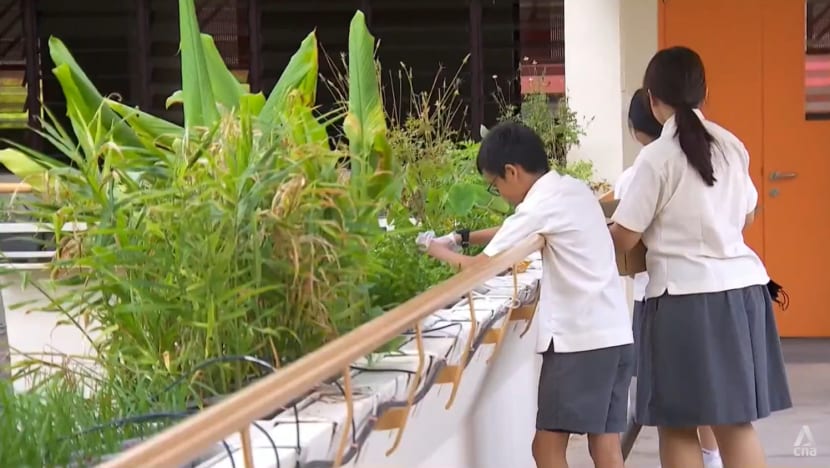
SINGAPORE: Schools here are going green with efforts to reduce carbon emissions, while ramping up on initiatives to educate students on climate issues from a younger age.
More than 180 schools have joined in the SolarNova programme, which progressively installs solar panels on their rooftops, the Ministry of Education (MOE) said earlier this month.
Over 40 of them have finished installing the panels so far, double the number that had done so in 2021.
Schools will also continue with other infrastructural enhancements, such as using LED lights and direct-current ceiling fans, the Education Ministry added.
Apart from infrastructural projects on school premises, students are encouraged to be more environmentally conscious through everyday activities such as finishing their food to avoid wastage.
They also play an active role in planning for events like Earth Day, which falls on Apr 22 every year.
These are all in line with MOE’s plans to include environmental sustainability in the school curriculum.
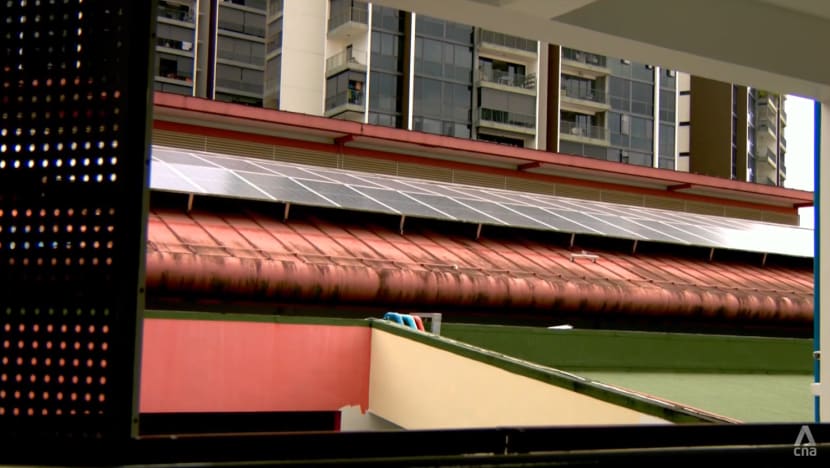
While the ministry provides centralised resources for schools to tap on, each school can tailor their sustainability programmes based on their own needs.
HARNESSING SOLAR POWER
Edgefield Primary School in Punggol gets about 40 per cent of its energy from the solar panels on its rooftops.
Besides the lights and fans in classrooms, the panels also power a hydroponics farm, which is maintained by Primary 3 and 4 pupils.
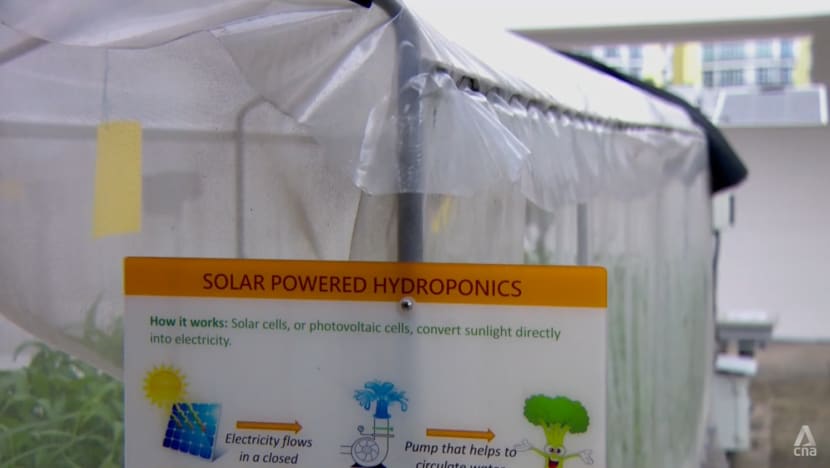
Science teacher Debbie See said: "Climate education and sustainability have definitely shifted significantly over the years with a greater sense of urgency now, because our students are seeing and feeling for themselves the impacts of climate change.”
This includes the extreme weather patterns and the rising sea levels, said Ms See, who has been teaching for 20 years.
“Therefore, there is definitely a greater focus in engaging our students on sustainability and having them take on a more active role in taking care of our planet. Because after all, they are the future caretakers of our planet.”
The school also teaches sustainable living through daily actions, such as reducing wastage by finishing their food.
Students who do so are rewarded with stamps, which can then be used to redeem stickers and pins.
Edgefield Primary School pupil Dash Chiang, who is in Primary 5, said: "I want to learn how to make something that can help clean water, but not just a filtration system. Something more complicated, something that's more efficient and effective."
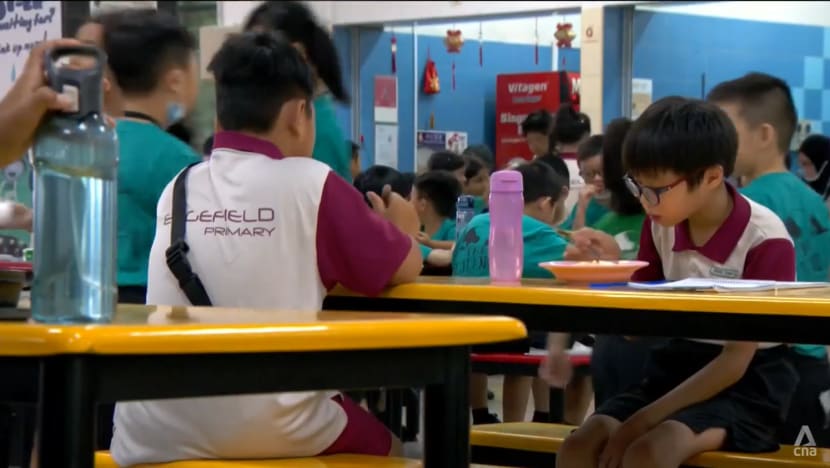
TACKLING FOOD WASTAGE
This year, apart from teaching primary school students about global warming and environmental issues such as pollution and deforestation through science lessons, MOE is placing a special emphasis on food sustainability.
Over at Bukit Batok Secondary School, leftovers are collected from canteen vendors and placed in a food digester, which converts them into compost and nutrients for the school garden.
Geography teacher Anita Chandrasagaran, who has been teaching for five years, said the students have responded “pretty well” to the initiative.
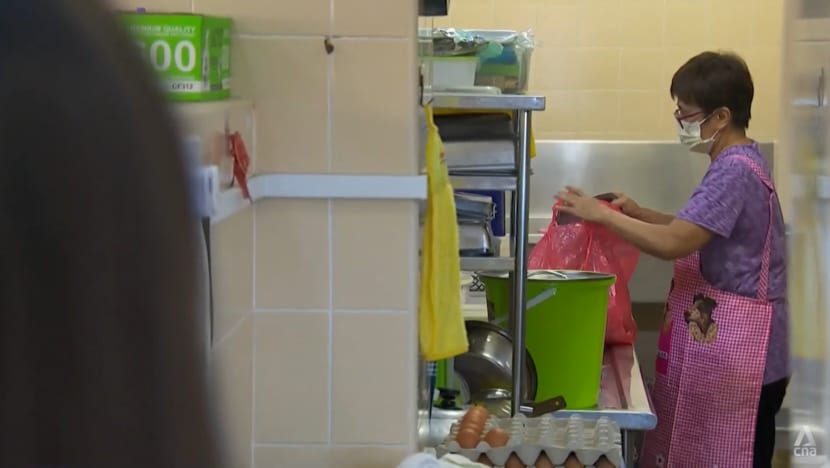
"I think they have heightened awareness about these environmental events, and also how their consumption of resources have an impact on the environment. We have seen increased rates of recycling in the school,” she added.
The school has also appointed students as Green Leaders to monitor and plan daily activities, as well as commemorate events like Earth Day.
"I want to learn more about the future careers in terms of sustainability,” said Secondary 4 student Alicia Hua, one such student leader at Bukit Batok Secondary School, adding that her role as a Green Leader has sparked her interest to work in the environment sector in future.
The schools are looking for ways to collaborate with community partners and environmental organisations, to give students more chances to grow in this area.
Read this story in Bahasa Melayu here.
Read this story in Bahasa Indonesia here.
















